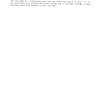Pricing Change
New pricing for orders of material from this site will come into place shortly. Charges for supply of digital images, digitisation on demand, prints and licensing will be altered.
Upcoming Maintenance
Please be advised that this website will undergo scheduled maintenance on the following dates:
Thursday, 9 January: 11:00 AM - 3:00 PM
Thursday, 23 January: 11:00 AM - 3:00 PM
Thursday, 30 January: 11:00 AM - 3:00 PM
During these times, some functionality such as image purchasing may be temporarily unavailable. We apologise for any inconvenience this may cause.
Struan Church
Burial Ground (Period Unknown), Church (19th Century) (1829), Cross Slab (Early Medieval), Bell
Site Name Struan Church
Classification Burial Ground (Period Unknown), Church (19th Century) (1829), Cross Slab (Early Medieval), Bell
Alternative Name(s) Struan, St Rowan's Church; Struan Church And Churchyard; Struan Church, St Fillan's Church And Cross-slab
Canmore ID 25819
Site Number NN86NW 7
NGR NN 80891 65353
Datum OSGB36 - NGR
Permalink http://canmore.org.uk/site/25819
- Council Perth And Kinross
- Parish Blair Atholl
- Former Region Tayside
- Former District Perth And Kinross
- Former County Perthshire
Struan 1(St Fillan), Perthshire, Pictish symbol stone fragment
Measurements: H 1.26m, W 0.79m tapering to 0.39m, D 0.11m
Stone type: blue scistose slate
Place of discovery: NN c8087 6533
Present location:inside the church at Struan (1828), set on a concrete pad and clamped to the north wall of the chancel.
Evidence for discovery: found in the churchyard sometime before 1832 when it was recorded by Skene, who shows it upright and apparently intact apart from the top right corner. ECMS records it the other way up, leaning against the S wall of the church, where it remained at least until the 1960s. The church stands on the site of an older church dedicated to St Fillan, set on a knoll above the confluence of the River Garry and the Errochty Water.
Present condition:
Description
This fragment is incised with a double disc and Z-rod symbol, positioned to the left of centre. Two parallel curving lines to the lower right of the symbol are the result of flaking. There may be traces of a second symbol beside the double disc and Z-rod, on its right.
Date: seventh century.
References: Skene 1832, 31; ECMS pt 3, 285-6 (Strowan); Fraser 2008, no 193.
Compiled by A Ritchie 2016
Struan 2 (St Fillan), Perthshire, cross-slab
Measurements: H 1.10m above ground, W 0.70m, D 0.30m
Stone type: blue schistose slate
Place of discovery: NN 8089 6535
Present location: in the churchyard.
Evidence for discovery: recorded by RCAHMS in 2014.
Present condition:
Description
This substantial rectilinear slab is deeply incised with a simple linear cross on each of its narrow faces. The cross on the west face is carved with a broad groove, while that on the east face is carved with a narrow groove.
Date: seventh century or later.
References: ECMS pt 3, 343; DP 203008.
Compiled by A Ritchie 2016
Struan 3 (St Fillan), Perthshire, cross-slab
Measurements: H 1.10m above ground, W 0.70m
Stone type: schistose slate
Place of discovery: NN 8089 6535
Present location: set into the inner face of the west wall of the churchyard.
Evidence for discovery: recorded in ECMS as standing in the churchyard.
Present condition: the visible face is flaking badly.
Description
This tapering slab is carved with an equal-armed cross with rounded terminals, in which the transverse arms are shown cutting across the vertical arms.
Date: early medieval.
References: ECMS pt 3, 343. DP 204012.
Compiled by A Ritchie 2016
Compiled by A Ritchie 2016
Struan 4 (St Fillan), Perthshire, cross-slab
Measurements: H 0.40m above ground, W 0.51m, D 0.15m
Stone type: schistose slate
Place of discovery: NN 8085 6533
Present location: in the churchyard to the south of the church.
Evidence for discovery: recorded by RCAHMS in 2014.
Present condition: good.
Description
This slab is incised with a simple linear cross on the lower part of the east face.
Date: seventh century or later.
References: DP 204004.
Compiled by A Ritchie 2016.
NN86NW 7 80891 65353.
(NN 8088 6535) Church on Site of St. Rowan's Church (NR)
OS 6" map, Perthshire, 2nd ed., (1900)
Struan Church dates from 1829.
G Hay 1957.
The ancient parish of Struan, now included in Blair Atholl, had its church under the invocation of St. Fillan.
J M MacKinlay 1914.
Struan may have been thought to be a corruption of 'St. Rowan' as has been suggested for Strowan in Monzievaird and Strowan (NN82SW 4). However, according to Watson, the name is Struthan, 'current-place', 'stream-place', it being at the junction of the rivers Garry and Erichdie.
W J Watson 1926; OS 6" map annotated by D J Chapman, 9 November 1966.
Abutting the south wall of the present church of Struan are the faint outlines of a rectangular building, c.22.5m x c.6.5m. According to the minister this outline marks the site of the old church of Struan, which was known as St. Fillan's Church.
In Perth Museum is the iron "Bell of Struan.' It was used as the church bell until the late Mr McInroy of Lude gave the church a new bell and received the old one in exchange. It was purchased at the Lude Sale in 1939 by A K Bell Esq., Kincarrathy House, Perth, and presented by him to the Museum in 1939.
Outline of old church surveyed at 1/2500.
Visited by OS (W D J) 11 September 1967; Information from Rev Donald Cameron, Struan Church to OS.






































































